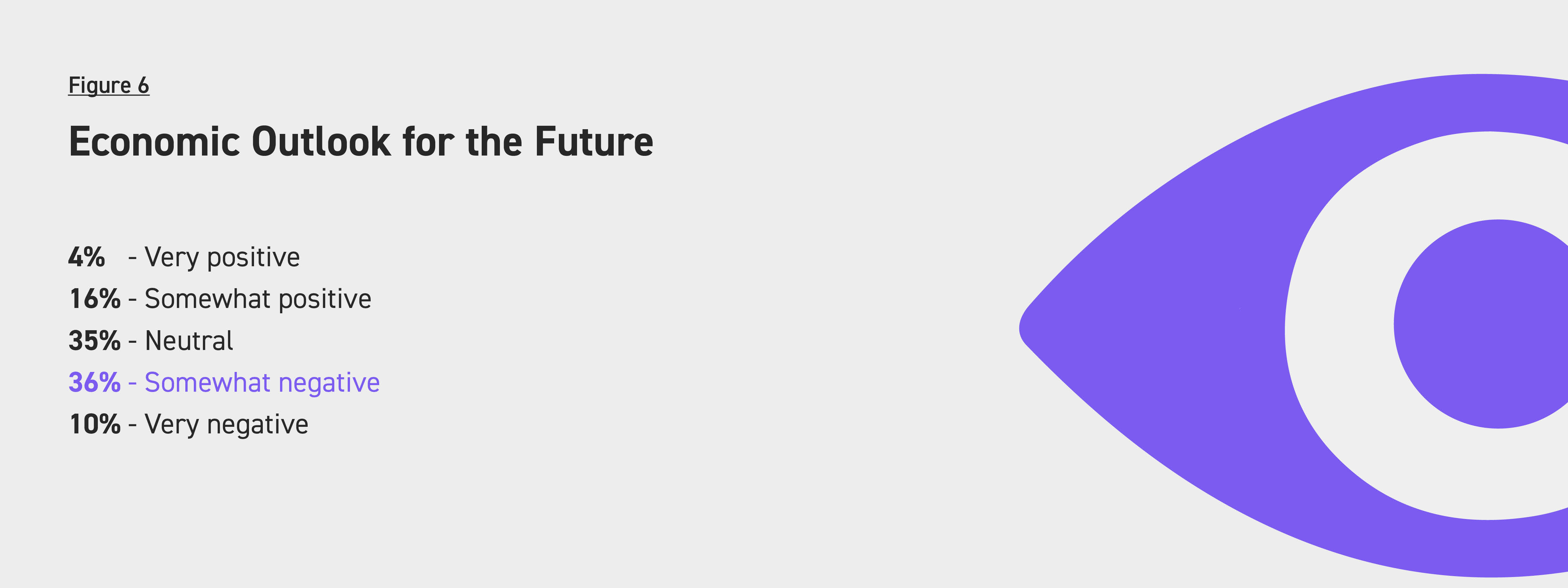In today's volatile geopolitical and economic landscape, C-level executives are navigating a complex web of challenges – from tariffs and inflation to supply chain issues and global conflicts – that impact their strategic decision-making and organizational priorities. As businesses face ongoing uncertainties, how is the C-suite guiding their companies through these turbulent times?
Our recent Community Pulse Survey conducted April 4 -11, 2025 reveals a predominant sense of unease among executives about the geopolitical and economic climate's impact on their businesses. Here, we explore insights from 680 C-level executives, shedding light on their perspectives regarding the current economic environment, the factors influencing their business strategies, and the strategic shifts they are making to adapt to these challenges.
C-Level Executive Sentiments on the Geopolitical and Economic Climate
Across the C-suite, a significant majority of executives (61%) express negative sentiments regarding the current geopolitical and economic environment's impact on their businesses. Meanwhile, 32% maintain a neutral stance, and a mere 7% hold a positive outlook on the economic climate.

Regionally, executives in Europe, the Middle East, and Africa (EMEA) exhibit a more negative outlook compared to their North American counterparts, with 70% expressing negative sentiments, 24% neutral, and only 5% positive. In North America, 58% of executives report negative sentiments, 34% are neutral, and 8% are positive about the current economic environment.
Economic Factors Influencing Business Strategies
In early 2025, a wide range of economic factors are impacting businesses. Tariffs and trade implications top the list, affecting 16% of respondents. Inflation and government regulations each concern 14% of executives, while labor issues and supply chain disruptions impact 11% and 10%, respectively.

In the comments, executives also highlighted concerns about political stability, financial support from government programs, and an overall lack of market confidence as significant influences on their business strategies.
Strategic Shifts in Response to Economic Challenges
Despite the negative outlook, 60% of C-level executives are maintaining their strategic priorities for the year. However, 15% have already adjusted their strategies, and 24% are in the process of revising their 2025 plans.

For those adjusting their strategies, key actions include prioritizing investments (24%), scenario planning (20%), and implementing budget cuts (19%).

Executives who selected "Other" often emphasized cost reduction, focusing on core priorities, and investing in advanced technologies and AI. One executive remarked, "Focus on core business; postpone growth plans." Another shared, "Severely reduced spending and budget cuts; no new projects unless something is broken." A third noted, "AI and automation to drive cost reduction."
Impact of Geopolitical and Economic Climate on Business Functions
Beyond their general business objectives, we asked executives to provide valuable insights into how economic factors are influencing their respective functions. While financial constraints and leveraging technology effectively are common challenges, each role faces unique concerns. Here are a few of their responses:
There’s an increased risk of attack due to economic uncertainty."
– CISO community member
Concern over current and future cuts in government funding.”
– CFO community member
Keeping everyone positive, motivated and focused. Additionally, the ability to find and recruit talent aligned with our strategic initiatives.”
– CHRO community member
Data and analytics will become even more important in decision making and strategic planning. AI and automation will become a necessity for labor efficiency.”
– CDAO community member
For technologists, we're faced with more demand to address ways technology can help the business areas reduce costs, while we're faced with cost controls ourselves.”
– CIO community member
C-Suite Outlook for the Remainder of 2025
Looking ahead, C-suite executives were asked about the likelihood of a global recession in 2025. A substantial majority, nearly 80%, believe a recession is either likely (56%) or very likely (23%) to occur. Meanwhile, 11% remain unsure, 10% consider it unlikely, and only 1% believe it is very unlikely.

Despite the prevailing expectation of a recession, executives have a slightly brighter economic outlook for the second half of 2025, with 20% of respondents expressing a positive outlook for the remainder of the year. A neutral perspective is held by 35%, while 46% anticipate a negative economic environment.

If you are a C-level executive navigating economic uncertainty, consider joining Gartner C-level Communities to discuss these challenges with your peers. If you are already a member, sign in to our app to find your community’s next gathering.
Based on 680 responses to Gartner C-level Communities’ Community Pulse Survey, April 2025.
By C-Level, For C-Level™
Find your local community and explore the benefits of becoming a member.





